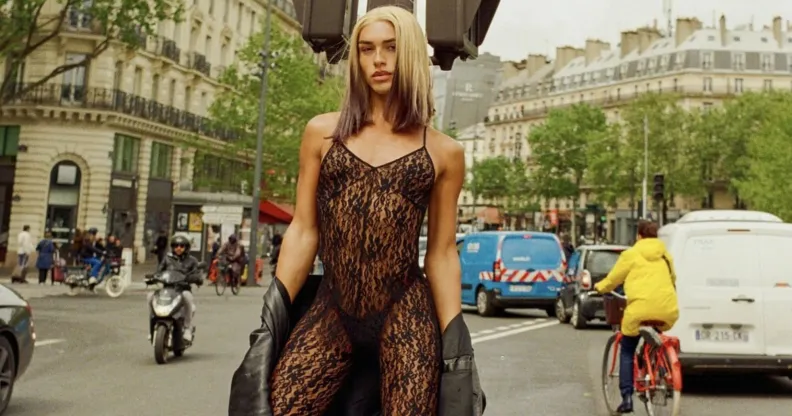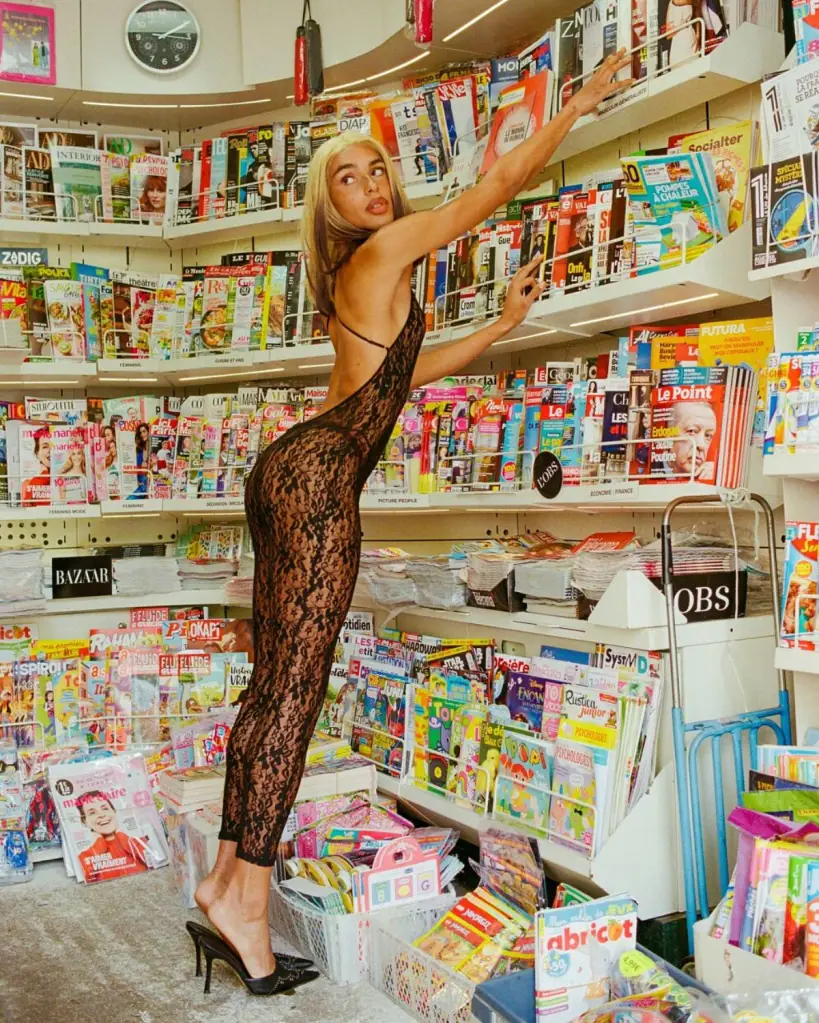How the ballroom scene helped a trans model find herself and live unapologetically

Trans model and influencer Koko Barno says being part of the ballroom scene and seeing trans people ‘just looking fabulous and not being apologetic’ helped her live as her authentic self. (Nael)
When Koko Barno entered the ballroom scene, the trans model “opened herself” to a world of fabulous Black, trans and other LGBTQ+ people living unapologetically – and it inspired her to do the same.
Beginning in the late 19th century, members of the Black, Latinx, LGBTQ+ and other marginalised communities developed a thriving subculture as they gathered in large cities to organise house balls where they could express themselves freely and find acceptance.
The art form began as an underground subculture but gained global renown due to the impact of Madonna’s “Vogue” and FX’s breakout drama Pose.
Ballroom houses and the scene have functioned as found families in a world where being queer and trans is stigmatised, and it’s where Barno gained more awareness of her trans identity.
Barno, who works with SUPA Model Management, travelled to New York City two or three years ago with a friend during a time when she was “already questioning” herself.
There she found the ballroom scene and discovered a new community where she had the freedom to explore her identity when she came back to London.
“I started doing balls and everything and opened myself to this world,” she tells PinkNews. “I was introduced to this community so smoothly.
“I think it really helped me find out because, in ballroom, there are trans people everywhere, and it’s very thrilling because the way that I’ve seen them just there, just looking fabulous and not being apologetic for their words and who they are.
“I was like, ‘Wow, okay, can I be like you?’ So when I started talking with these people and they were telling me their stories, I started to relate with the stories.”

Barno recalls that it was “very hard” for her at first because she was discovering who she was and “new things in life”. So when people started telling her that they thought she was like them, she started to question and push herself.
“I remember I was in London back in the day, and I was on FaceTime with my stepfather who I had a good relationship with.
“And I was doing content things for Instagram, and I had like four looks and these four were very masculine.
“I was like, ‘You know what, I’m gonna break the chain and do one feminine full look, shave the beard, do my hair, do makeup.’
“I was like, ‘Oh, wow’, and I remember I called my stepfather. They were like, ‘You know what’s a challenge? You go to Oxford Street and walk all the way, see what’s gonna happen and see how you feel.’
“That’s what I did, and the way that people were responding with me being me – it was very thrilling.
“I was very accepted because a lot of people came up to me and were like, ‘Oh my God, you look so amazing.’
“Of course, some others were saying bad things, but I wasn’t hearing them. Once I started that, my journey of transition started.”
Barno has found immense joy in living as her authentic self and feels trans joy is rooted in self-expression and “not really caring about other people”. For her, trans joy comes up in any kind of situation because she’s “not apologetic”.
She adds that celebrating trans joy all year round is a “game changer”, especially during times when “nothing is pink”.
“We think once you transition everything is gonna be pink – it’s a lie,” she says. “Transitioning is a big thing.
“You have to be very sure of where you’re heading. You got to think before starting any journey because a lot of people have been talking about it, and it’s very lights up now.
“We feel more seen than before, and I think it’s so powerful.”
Barno can relate being trans to a “lot of spirituality” because trans folks have to be in tune with themselves, their feelings, their “guts” and “inner child” to discover their path forward in life.
As a result of that deep inner knowledge, she believes that “showing the best of ourselves” and “being fabulous” are integral aspects of the joy trans people experience when living their truth.
“That’s the real thing,” she says. “And also then, you just get to enjoy it.”
How did this story make you feel?

